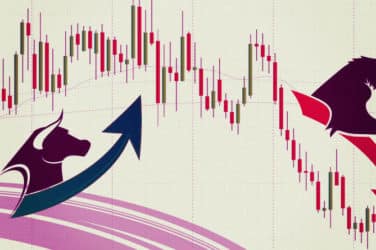
Dodd-Frank’s Form ADV may bolster exchange-traded derivatives.
Wall Street’s participants in the over-the-counter derivatives market have tended to be highly critical of the Dodd-Frank Act, but investment managers engaged in the exchange-traded derivatives markets may view it more through the perspective of a glass half full.
 Rampart Investment Management’s funds specialize in exchange-traded, derivatives-based strategies that provide its institutional customers with lower volatility than investing directly in equities and an income stream derived from selling puts and calls.
Rampart Investment Management’s funds specialize in exchange-traded, derivatives-based strategies that provide its institutional customers with lower volatility than investing directly in equities and an income stream derived from selling puts and calls.
Institutional investor board members, and especially those in the municipal retirement segment, tend not to have the education or experience to see the value in these more esoteric strategies, said Ronald Egalka, president and chief investment officer at Rampart. Dodd-Frank’s requirement that registered investment advisors’ registration forms, Form ADV, be written in plain English for folks outside the financial industry to understand may change that. The last firms, depending on their fiscal years, began complying with the rule July 31.
RIAs are required to either publish an SEC-approved brochure describe their firms and services, or they can publish part 2 of their Form ADV, which must be updated and amended annually. Egalka said Rampart has sought to provide clear language to investors since its start in 1983. He added it wasn’t a big deal for already registered Rampart, although conforming its documents was time consuming.
Many more hedge funds are now required to register under Dodd-Frank and they will have to create compliant documents for the first time, and specialists in the derivatives market will have to step out of their technical niche to communicate with the broader investor community.
“It becomes more problematic for people working in the hedge fund area that are used to working in a black box, or folks in the derivatives market that talk in Greek terms” describing risks, Egalka said.
Although still too early to measure the new requirement’s impact, in addition to giving investors clearer understanding of investment opportunities, it should reduce their fear of the unknown, especially in terms putting money to work in the exchange-traded derivatives market. And that can only be a boon for money managers such as Rampart.
Egalka said that he’s been working on a 10-page tutorial presentation that doesn’t mention a single option or “Greek” term, and it’s been a challenge. “But we believe the better our clients and prospects understand the rationale behind a strategy, the more comfortable they will be allocating assets to it,” Egalka said.






